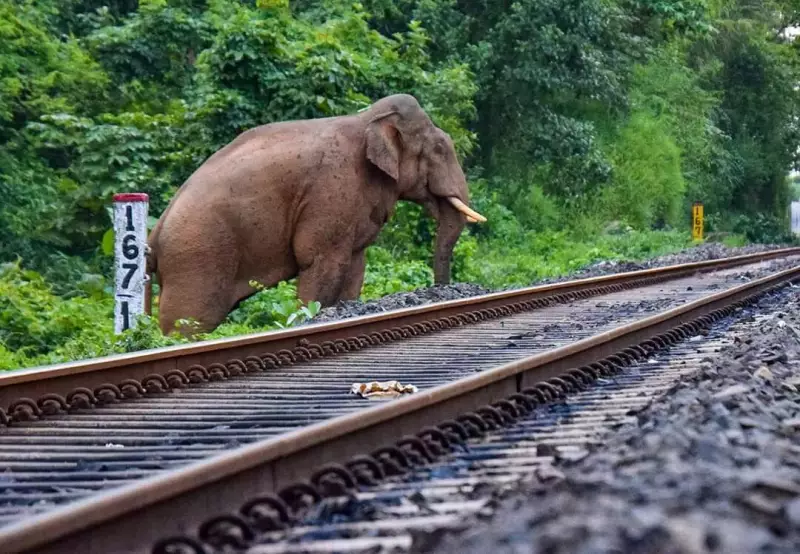
In a remarkable demonstration of alertness and compassion, train operators within the Northeast Frontier Railway zone have successfully prevented several tragic accidents, saving the lives of seven elephants over the past month. These heroic interventions occurred in regions known for high elephant movement, showcasing the railway staff's commitment to both passenger safety and wildlife conservation.
Three Critical Interventions That Saved Lives
The first incident occurred on October 10 when tower wagon driver Jitendra Kumar spotted two elephants crossing the railway tracks in the Alipurduar division. Displaying quick thinking and responsibility, Kumar immediately applied brakes and brought his vehicle to a complete stop, thereby averting what could have been a fatal collision.
Just six days later, on October 16, another potential tragedy was prevented by loco pilot Satyendra Yadav and assistant loco pilot Sudarshan Hatimuria. While operating a special train through the Mariani-Titabar section of Tinsukia division, the crew noticed four elephants on the tracks. Their prompt braking action ensured all four animals were saved from harm.
The third incident took place on October 24 when the crew of Train No. 20503 (Dibrugarh-New Delhi Rajdhani Express) encountered an elephant on the track. Loco pilot Lalman and assistant loco pilot Vinit Gupta immediately engaged emergency brakes between the Bokajan-Khotkhoti section, successfully stopping the train and preventing a mishap that could have endangered both wildlife and passengers.
NFR's Commitment to Wildlife Protection
According to Kapinjal Kishore Sharma, NFR chief public relations officer, these incidents highlight the dedication and vigilance consistently shown by railway staff. The Northeast Frontier Railway zone manages the longest elephant corridors in the entire Indian Railways network, spanning an impressive 519 kilometers across northeastern states, North Bengal, and parts of Bihar.
Sharma emphasized that these successful interventions reflect the railway's broader commitment to ensuring safe train operations while protecting valuable wildlife. The challenging terrain and extensive elephant movement areas require constant alertness from all railway personnel.
Preventive Measures for Future Safety
To further reduce the risk of elephant-train collisions in sensitive areas, the railway administration is implementing several advanced safety measures. These include:
- Installation of Intrusion Detection Systems to provide early warnings
- Construction of underpasses to facilitate safe animal movement
- Enhanced patrolling in high-risk zones
- Continuous staff training on wildlife protection protocols
These technological interventions, combined with the human element of alert train crews, create a comprehensive safety net for the majestic elephants that frequently cross railway tracks in these regions. The railway's proactive approach demonstrates how infrastructure development and wildlife conservation can coexist through careful planning and dedicated implementation.





